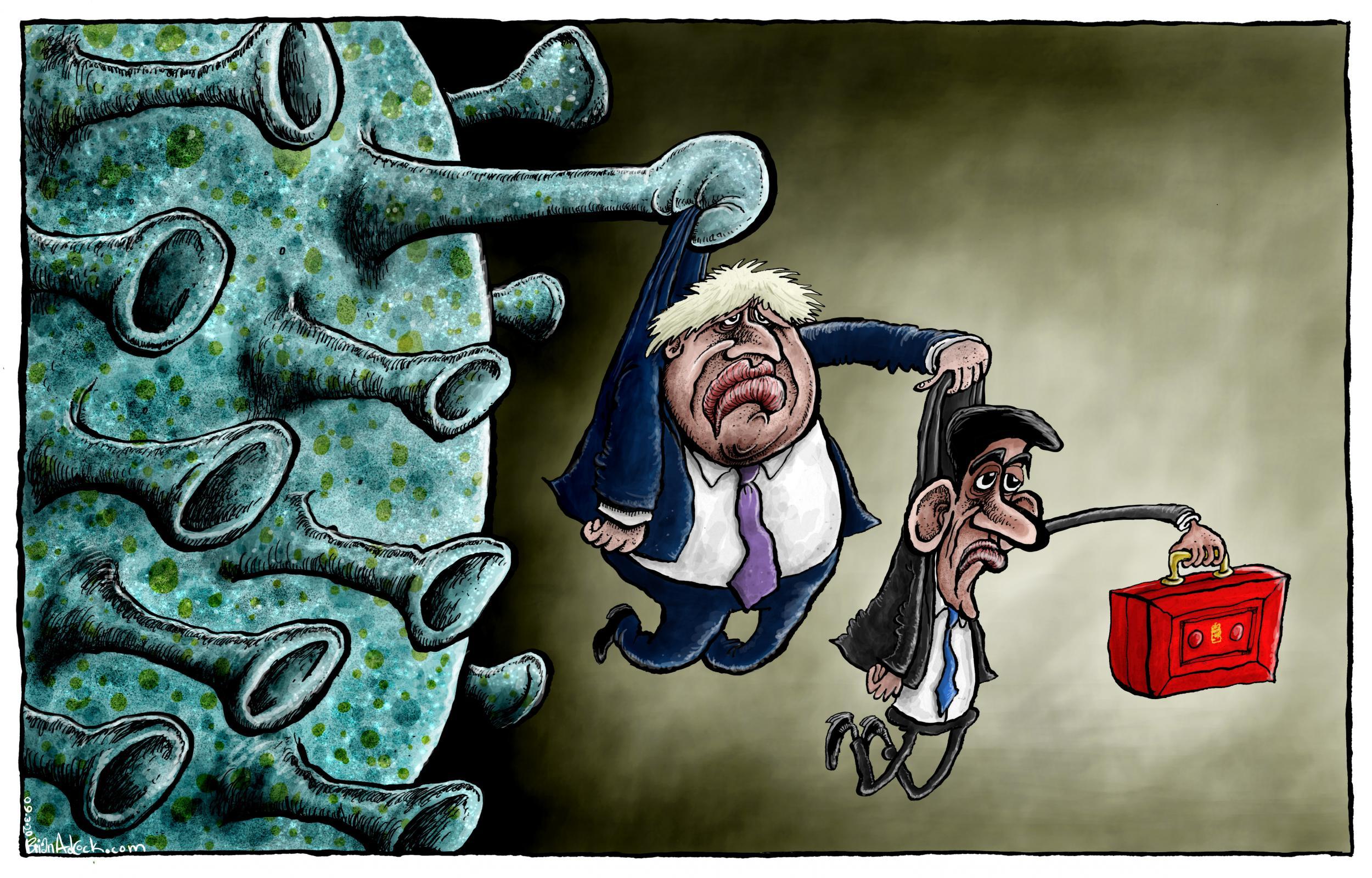The chancellor’s Budget isn’t daring enough to even remotely level up Britain
Editorial: Whatever the turmoil of the next few months, voters will judge the Tories not on whether they stick to the small print of fiscal rules but whether they make real progress on improving prospects for the people

In his first television interviews since becoming chancellor three weeks ago, Rishi Sunak gave a polished and reassuring performance that will have delighted No 10. Boris Johnson and his advisers feel they now have “their man” at the Treasury; they never felt the same about Sajid Javid, his independent-minded predecessor.
Wednesday’s Budget will inevitably be overshadowed by the coronavirus outbreak. In his interviews on Sky News and the BBC on Sunday, the chancellor made the right noises about protecting businesses and employees. His Budget must make this watertight – for example, ensuring that no worker, including the two million who do not qualify for statutory sick pay, feels under financial pressure to go to work when they should stay at home. Universal credit, claims for which routinely take five weeks, must become more flexible to help the self-employed, who cannot draw sick pay. Small firms struggling to fund sick pay should receive government rebates.
Mr Sunak insisted the Budget would also outline plans to deliver the Conservatives’ election promise to “level up” opportunities for all and boost poorer regions. While he will garner some headlines about spending on capital projects, it is regrettable that a long-awaited “national infrastructure strategy” will not now be published alongside the Budget. The chancellor announced on Sunday that spending on flood defences will double to £5.2bn, protecting 336,000 properties over the next six years. This is welcome but overdue, and will not bring any relief to those people still suffering from the disastrous effects of this winter’s floods.
Mr Sunak will trumpet his Budget as delivering Tory manifesto promises, for example on “levelling up” and raising the earnings level at which workers start to pay national insurance contributions. However, he was coy about whether he will stick to the fiscal rules set out in the manifesto and announced by Mr Javid last November. He emphasised his belief in “the importance of sound fiscal management” but would not be drawn on his party’s promise to balance day-to-day spending on public services in three years, limit capital spending to 3 per cent of GDP and ensure debt is lower at the end of the five-year parliament.
The Treasury might be tempted to put off a decision on the rules until the chancellor’s second Budget in the autumn. It is true that the impact of coronavirus, and the shape of the UK-EU trade deal, will be clearer by then. But he should bite the bullet and ease the government’s unnecessarily tight straitjacket now. There is no time to waste. Mr Sunak can argue that circumstances have changed since the manifesto was written. Coronavirus is bound to require more spending on health, social care, local authorities, support for business and state benefits. While the effect will hopefully be temporary, the demands on public services will not be. Higher government spending would boost the economy when already weak growth will likely fall this year because of the outbreak. A rise in government borrowing, at a time when interest rates are at a historic low, would be unlikely to spook the financial markets.
Mr Sunak should look at the big picture. Whatever the turmoil of the next few months, voters will judge the Tories not on whether they stick to the small print of their original fiscal rules but whether they make real progress on their “levelling up” agenda. As the National Institute for Economic and Social Research has warned, the planned additional public investment of about £20bn a year “is unlikely to have more than a modest impact on productivity and is not expected to offset the negative effect of Brexit”.
For “levelling up” to be more than just another undelivered slogan, Mr Sunak will need a step-change in investment in services such as health, education and skills, as well as building more roads, bridges and rail links over a longer period. It would be in his party’s interests, as well as the country’s, for the already outdated fiscal rules to be relaxed.
Join our commenting forum
Join thought-provoking conversations, follow other Independent readers and see their replies
Comments